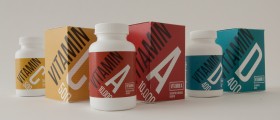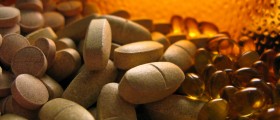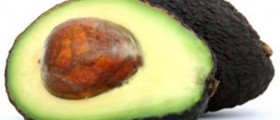
Benefitsof Vitamins
Vitaminsare an essential nutrient for the body. They are typically absorbedin large quantities from foods like fruits, vegetables and seafood,but are present in just about every type of food. There are two typesof vitamin, those which are soluble in water and those which aresoluble in fat. The fat-soluble ones can be stored by the body in fatcells and kept for later use. Water-soluble vitamins are transportedby the blood stream as soon as they are absorbed and are usedimmediately, and must therefore be gotten every day to ensure aconstant supply.
Fat-solubleVitamins
VitaminA is one of the most well-known vitamins. It boosts eyesight,improves cell structure, promotes natural growth of the body andincreases the appetite. Good sources for vitamin A include yolks ofchicken eggs, milk and milk by-products, yellow fruits like bananasand lemons and fish-liver oil and other animal livers.
Fattyfish such as tuna, salmon, herring and sardines, sunlight, eggs, codliver oil and milk products are all great sources of vitamin D. Thisvitamin strengthens the bones (including the teeth) and allows for efficientabsorption of phosphorus and calcium via the digestive system.
VitaminE is generally found in whole grains, oil from vegetables, leafygreen vegetables like lettuce and spinach, various types of nuts,eggs and soy beans. Vitamin E has potent antioxidant qualities and isnecessary for red blood cell production and proper functioning of thebrain.
Anessential mineral in the body, vitamin K is required for bloodclotting as it helps the body to produce prothrombin. Vitamin K ismostly found in milk products and vegetables like cabbage andlettuce.
Water-solubleVitamins
VitaminB1, also called thiamine, aids the nervous system and helps the bodyin breaking down carbohydrates as well as general digestion andrepairing tissues damage by alcohol. Peanuts, beans, milk, pork,brown rice and other whole grains all contain thiamine.
Riboflavin(vitamin B2) is found in dairy products, various meats, fish, leafyvegetables and in yeast. Is is essential for the skin, hair and nailgrowth as well as for the proper digestion of fats, proteins andcarbs. It also aids the body in producing enzymes and helps preventulcers and sores.
Bloodcirculation and nervous system functions require niacin, the B3vitamin, as do the production of various hormones like insulin,testosterone, oestrogen and cortisone. Vitamin B3 is usually found innon-fatty meat, poultry, whole grains and fish.
VitaminB6, or pyridoxine, aids the body in maintaining ideal sugar levels inthe blood and is required to make haemoglobin. It also reduces therisk of nerve damage and skin disease and is contained in bananas,fish, pork, whole grains, wheat, yeast and chicken.
VitaminB12 is used by the body to facilitate the production of red bloodcells, nerves and cellular genetic composition. It also helps in thedigestion of folic acid and carbohydrates. Vitamin B12 can be foundin eggs, fish, beef, pork, eggs and milk.
VitaminC, found in berries, citrus fruits and most types of vegetables,improves the body's immune system and it increases cellularlongevity, eliminates the cholesterol and plaque and helps to heal the wounds quicker.
All ofthe above vitamins are essential for the proper functioning of thehuman body. A deficiency in any one of them can be quickly noticed,but it would not be easy to determine which one is lacking. A doctorshould be able to determine this and prescribe the correct medicationfor treatment.

















Your thoughts on this
Loading...